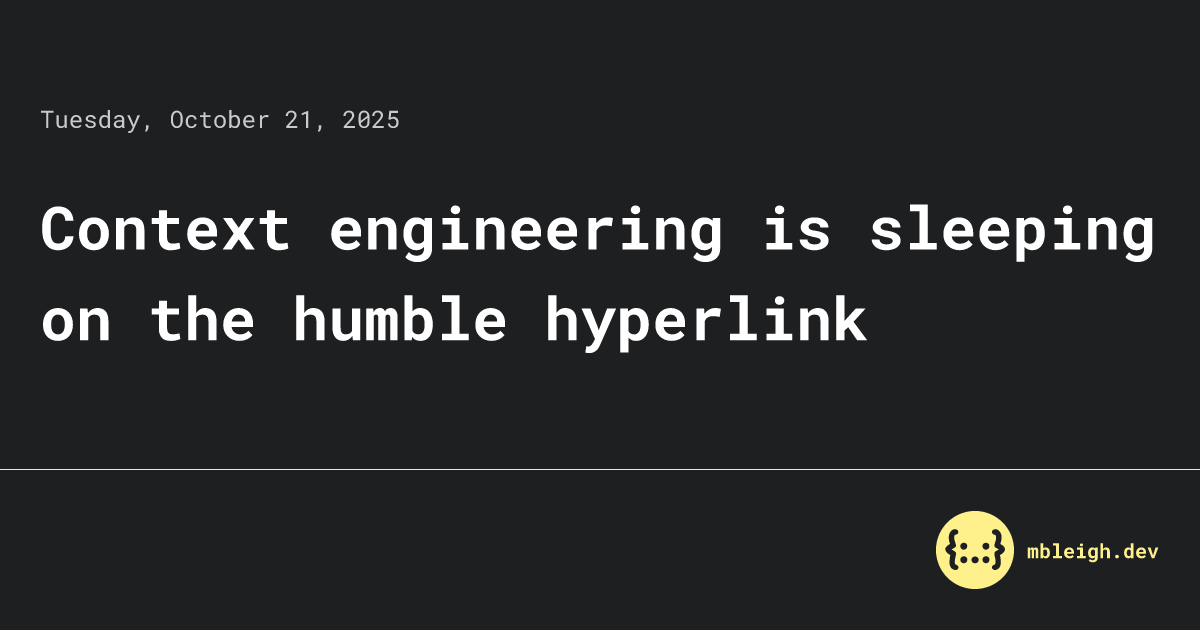At CircleCI, we’re committed to making our platform work seamlessly with the AI-powered tools that developers increasingly rely on. Our journey into AI integration is focused on creating a robust Model Context Protocol (MCP) server that allows AI assistants to access and understand CircleCI data in real-time. This enables developers to debug build failures, analyze test results, find and fix flaky tests, and improve pipelines using natural language within their favorite AI tools.
With the MCP server established, we recognized an opportunity to extend our AI integration capabilities by implementing the emerging llms.txt standard. Proposed by Jeremy Howard in late 2024, this web protocol serves as a roadmap that guides LLMs through digital content, helping them focus on what matters most. It’s a natural complement to our MCP work, further enhancing how AI systems interact with CircleCI.
By embracing these standards early, we’re not just improving how LLMs understand our platform, we’re creating new opportunities for developers to leverage AI in their CI/CD workflows and positioning CircleCI at the forefront of AI-powered development.
What is llms.txt and why it matters
The llms.txt standard addresses a fundamental challenge facing large language models: context limitations. When LLMs interact with websites, they struggle to process entire sites with complex structures and navigation elements.
Howard’s proposal is a standardized Markdown file at yoursite.com/llms.txt that provides curated, LLM-friendly content. Unlike robots.txt, which tells crawlers what not to access, llms.txt guides AI to what’s most important on your site.
For developer platforms like CircleCI, this helps AI tools quickly locate specific information about features or configurations without processing our entire documentation set.
Our implementation process
After we launched our MCP server and its dedicated landing page, we turned our attention to implementing the llms.txt standard to improve how AI tools interact with our website content. Here’s how we approached it:
Step 1: Creating the MCP Markdown page (mcp.md)
The recommendation from the llms.txt standard is that for:
pages on websites that have information that might be useful for LLMs to read provide a clean markdown version of those pages at the same URL as the original page, but with .md appended.
We created a clean, well-structured markdown document at circleci.com/mcp.md, optimizing it for both human readers and LLMs with proper heading hierarchy and code formatting.
Step 2: Developing the MVP llms.txt file
With the mcp.md file in place, we created our initial circleci.com/llms.txt file following the standard format. Our process involved:
- Starting with the required H1 header (“CircleCI”) and a concise blockquote summarizing our platform
- Methodically organizing our site’s most important resources into clear categories:
- Key Features
- Getting Started
- Developers
- Solutions by Role
- AI Tools (including our new mcp.md link)
- Comparison Guides
- Resources
- About
- Crafting brief, descriptive text for each link to help LLMs understand the content
- Ensuring our file structure followed the llms.txt specification
We were careful to select only the most relevant pages for inclusion, focusing on resources that would provide the most value to users asking about CircleCI through AI interfaces.
Future implementation plans
Our llms.txt implementation thus far is just the beginning. We’ve mapped out several enhancements to further improve AI interaction with our content:
- Step 3: Automating markdown generation - To maintain consistency, we’re exploring automated generation of markdown files from our website content
- Step 4: Creating markdown versions for all priority pages - We’ll develop clean .md versions of our most important pages, making them more accessible to LLMs.
- Step 5: Enhancing the llms.txt file - We’ll add more comprehensive site information, including additional categories and more detailed navigation suggestions.
- Step 6: Getting listed in llms.txt directories - We plan to submit our implementation to directories like directory.llmstxt.cloud to increase visibility.
- Step 7: Extending to docs - We’ll implement llms.txt and llms-full.txt for our docs site to give AI-powered coding assistants more streamlined access to the information developers need. That will include core concepts, common troubleshooting scenarios, contextually relevant code examples, and configuration snippets.
Completing these steps keeps CircleCI at the forefront of AI-friendly documentation, making our platform more accessible to developers using LLM-powered tools.
Looking forward
The results we expect from our llms.txt implementation are at the heart of our GEO strategy. We’re already seeing improvements in how AI tools understand and interact with CircleCI’s platform and our goals are nothing short of:
- More accurate responses - When developers ask AI assistants about CircleCI features, they’re getting more precise information drawn directly from our curated content.
- Better developer experience - Engineers using AI-powered coding tools can seamlessly access CircleCI data without context switching.
- Reduced support burden - Common questions about configuration and usage are being answered more effectively by AI tools.
- Increased discovery - Our comparison guides and solutions pages are more accessible to AI-driven research.
Looking ahead, we see llms.txt and GEO as a huge component of our organization’s broader AI strategy. Our product team continues to develop MCP server functionality with releases happening every week. And our vision on the marketing team is to ensure AI tools can discover and comprehend all that we are developing in this new and exciting space.
The ultimate goal is to create a seamless experience where AI tools can not only understand CircleCI’s capabilities, but also help implement them in real-time.
Ready to experience the benefits of AI-enhanced CI/CD? Install our MCP server in just a few minutes and start interacting with CircleCI directly from your favorite AI tools like Cursor, VS Code, or Claude Desktop.
.png)




